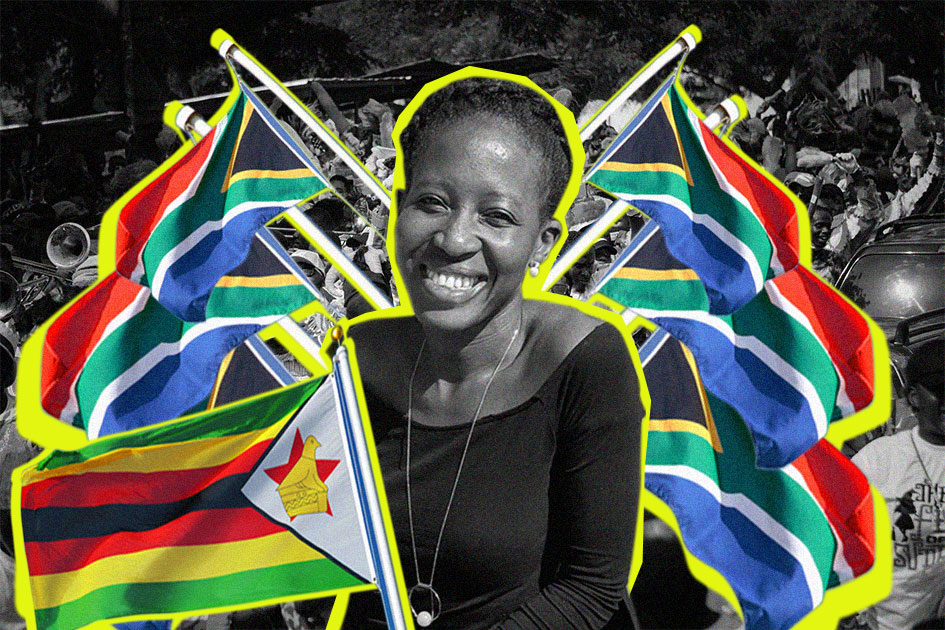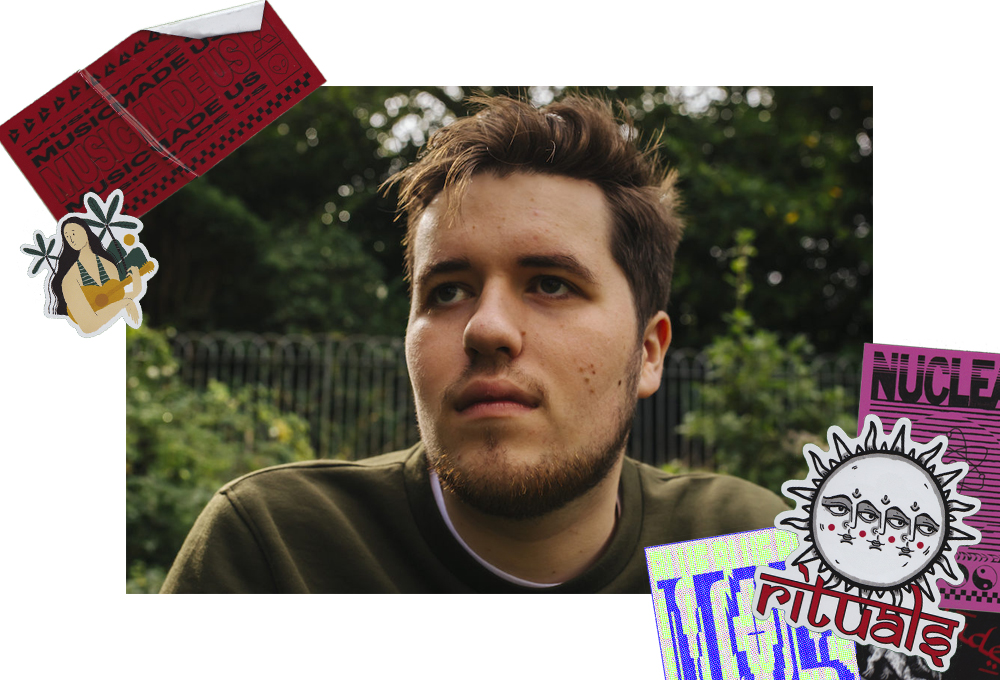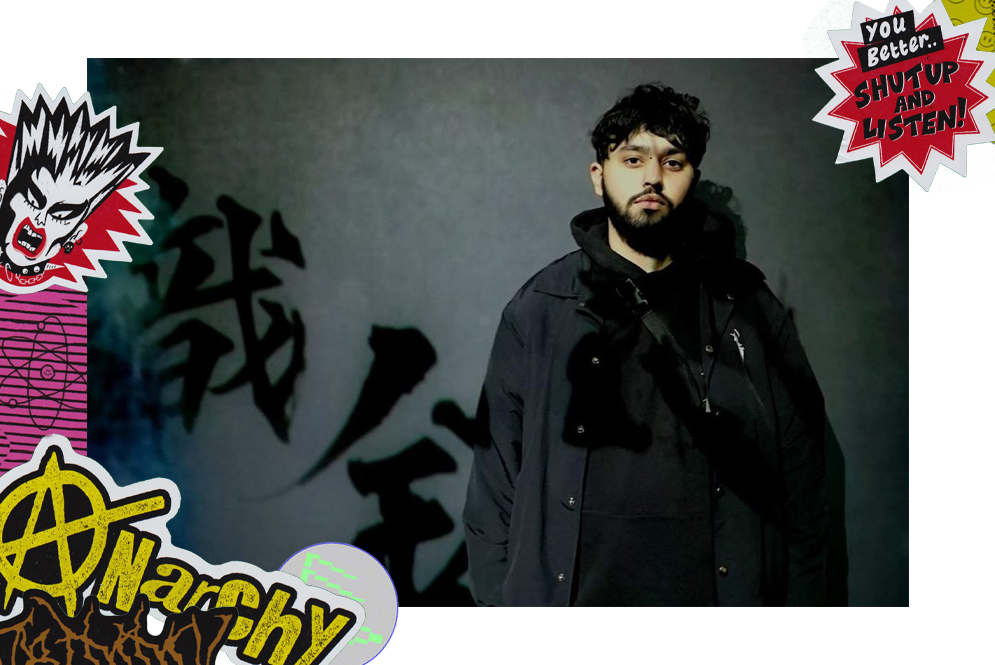As part of our Music Made Us campaign, Mpho Thandiwe Sibanda, Co-Founder of Khayafrika, explores her musical journey. Mpho discusses how growing up in Southern Africa influenced her musical tastes, why she set up Khayafrika (launching soon), and what she hopes to see for South African Afro House music going forward.
To me, music is spiritual. Music is life. It transcends all boundaries. I truly see music as the universal language that connects people regardless of race, gender, culture, status, or religion.
Music is such a powerful and positive force. The vibe is electric when that beat drops – be it at a festival, nightclub or street party. Music was my refuge during the pandemic and these past 12 months, especially at the height of lockdowns.
I was born in Bulawayo, the second-largest city in Zimbabwe, with family heritage and ties across Southern Africa – namely South Africa and Botswana. This naturally influenced my musical tastes from a very early stage. I listened to a plethora of localised South African genres that span different decades, such as Maskandi, Mbaqanga, Kwaito, and most recently, the Afro House subgenres like Amapiano and Gqom.
“It’s great to be able to trace back the evolution of the sound and see how it helped set the stage for the modern-day Afro House subgenres.”
I grew up listening to early 80s South African legendary dance artists like Brenda Fassie, Chicco, Chimora, Dalom Kids, Splash, Yvonne Chaka Chaka and Penny Penny, and then transitioned to the 90s Kwaito sound with Oskido, Mdu, Boom Shaka, Arthur Mafokate, Bongo Maffin, TKZee, Trompies, and Mandoza. It’s great to be able to trace back the evolution of the sound and see how it helped set the stage for the modern-day Afro House subgenres.
By the early-t0-mid 2000s, South Africa started to really forge their distinct and unique soulful, deep, tribal house sound. Soul Candi, a revered South African record label formed in 2001, was instrumental in helping the sound gain international recognition – alongside groundbreaking artists such as Liquideep, Mi Casa, DJ Sbu, DJ Cleo, DJ Fresh, Culoe De Song and Euphonik.
When Black Coffee’s album Home Brewed was released in 2009, featuring vocalist Bucie on the international hit track ‘Superman’, it was one of those musical genre-defining moments. It was among the first South African Afro House songs I heard played in UK clubs receiving so much love. Black Coffee is now a globally recognised superstar house DJ with sellout shows from Amsterdam, London, Lisbon, Miami, Paris, Toronto, Zurich, Dubai, Tanzania, Tunisia and, of course, in his native homeland of South Africa. His artistry and sound continue to evolve.
Since I can remember, global music has always been an integral part of my family life. I listened to my father’s old record collection with legends such as Nat King Cole to classical music like George Frideric Handel. Whilst growing up in Zimbabwe, I loved a TV music programme called Sounds on Saturday, and the Radio 3 shows that introduced me to not only local African sounds but also international pop, Rnb, reggae, soul, jazz, hip hop and soft rock music of the early 80s till late 90s. These musical influences really opened me up to the joy of music and were a great introduction and education to different musical tastes.
“I’ve yearned to see and hear live South African artists performing in the UK.”
My family migrated to the UK in my early teens. Over the passing years, I’ve yearned to see and hear live South African artists performing in the UK, specifically in the Afro House genre. That’s why I founded Khayafrika, an African music business passionate about showcasing this amazing music.
Afro House Music and Creating Khayafrika
“I wanted to build a music business that can promote and preserve African music, culture, and heritage.”
Launching soon, Khayafrika is a data research and live events music business focused on contemporary African music, with a specific focus on South African Afro House music. I’m a fan who’s fascinated to see the sound evolving into different subgenres while still maintaining its alluring afro-fusion mix. I wanted to build a music business that promotes and preserves African music, culture, and heritage.
I find each subgenre has its own uniqueness, but they are all about infusing house music – be it deep, soulful, jazzy house infused with tribal and localised township sounds or laced with amazing vocals and heavy bass lines with a lot of the artists easily mixing, producing and performing within cross-genre settings. So, the beat goes on as the range of talent continues to shine the flag for South African Afro House, such as Black Motion, Prince Kaybee, Heavy K, Sun El Musician, Dj Ganyani, DJ Zinhle, Master KG, Nokwazi, TNS, Busiswa, Mpumi, Samthing Soweto, Vico Da Sporo, Simmy, Msaki, Nomcebo, Kelly Khumalo, Moonchild Sanelly, Lady Zamar.
For Gqom fusion sounds, artists like Babes Wodumo, Mampintsha, DJ Tira, DJ Lag, Distruction Boyz, Sho Madjozi, Dlala Lazz, Rudeboyz, and Okmalumkoolkat help impress that sound. Amapiano artists such as JazziDisciples, MFR Souls, DJ Maphorisa, Kabza De Small, Cassper Nyovest, Sha Sha, Boohle, Lady Du, Bontle Smith, and Kamo Mphela all work their magic to push the sound to international stardom.
“It always brings a smile to my face to see the Afro House movement now gaining such global traction.”
I love how these artists fuse their indigenous African languages within their musical masterpieces – be it Zulu, Xhosa, Setswana or Tsonga. These languages resonate deeply with any subjects they sing about, such as love, hopes, dreams, or aspirations within their everyday lives. On top of this, you have the most amazing, sleek music videos and dance moves. It always brings a smile to my face to see the Afro House movement now gaining such global traction.
People like Da Kruk – an influential radio host who gave the Amapiano genre a platform on his radio show when others undermined it – helped pave the way for this genre. And I love that. I always believe that anyone in a position of influence – be it through financial resources, networking or connections – who use their status for good intent and help not only individuals but whole communities that would otherwise struggle should always be applauded.
This is a genre that’s not only taking South African youth by storm but is even making and gaining phenomenal traction around the world. Even Spotify and BBC 1xtra are playing it. There’s no doubt that the UK is amazing in understanding music tourism’s cultural and economic value. We see this in the phenomenal variety of music and art festivals every year from May through to September. I love how these festivals and other musical platforms in the UK give up-and-coming or relatively unknown artists the chance to be discovered.
In fact, today’s technology is helping new artists and this genre reach wider audiences. Besides Spotify, I see YouTube and the individual artists’ Facebook pages as the biggest spaces key to reaching more people.
“I would like to see us get to the point where contemporary African music (not just Afro House) is valued and appreciated for its great ongoing contribution.”
Going forward, I would like to see us get to the point where contemporary African music (not just Afro House) is valued and appreciated for its great ongoing contribution to the global recorded music scene, both culturally and economically. Khayafrika is dedicated to ensuring that happens.
South African Afro House Mix
Khayafrika is launching soon. Want to know more in the meantime? Email [email protected] for further information. Our Music Made Us campaign is told through the students, graduates, journalists, experts and passionate people who have been shaped by music. Discover their stories here.



